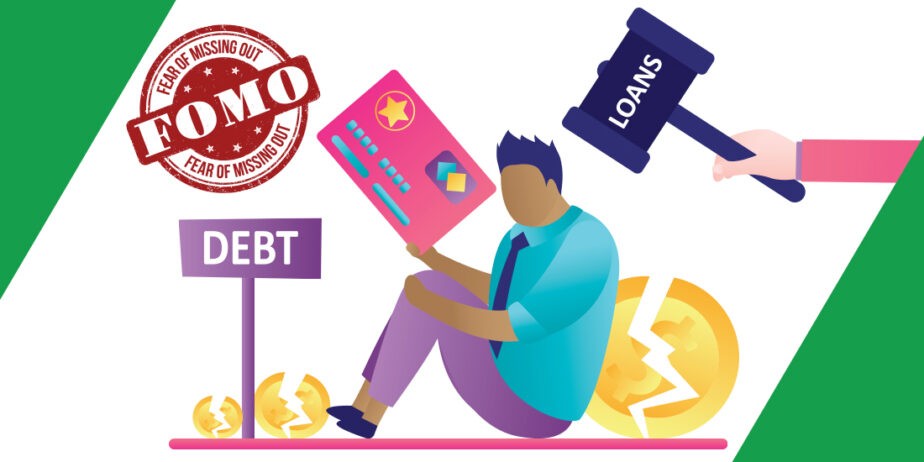The first inklings of credit cards appeared as clay tablets in ancient Mesopotamia, at least 5,000 years ago, recording transactions between merchants for payment of goods or services that would come later. Today, we are all too familiar with those thin, rectangular pieces of plastic, so much so that 77 percent of U.S. adults have at least one credit card.
What is a Credit Card?
But how do they work? How do I use one wisely? What credit card options are there?
To start, think of a credit card as a renewable short-term loan you must repay the lender by a set date. You’re borrowing money, recording that process and transaction on your card, and repaying later. Credit cards are incredibly convenient, and you can use them for various purchases such as groceries, gas, entertainment, everyday expenses, and larger purchases you know you can fully pay back shortly.
You may have heard the term “revolving credit” before. This means there is money available for you to borrow (up to a limit) that you can use and pay back again and again. It is essentially renewing and paying off a loan repeatedly.
What are Credit Card Limits?
Credit cards have spending limits, also known as credit lines. These limits define the maximum amount of money you can charge to your credit card within your billing cycle. This cycle is the time between the last payment given to the lender and the next scheduled payment. This period is usually a month, give or take a few days. Credit limits protect the lender, ensuring that card users can only use a set amount of borrowed money.
Financial factors like your credit history, credit score, and income determine your credit limit. The higher the credit limit, the more purchasing power you have. Your limit may automatically rise if there are changes in your financial situation (after requesting your lender to do so), responsible card use for some time, or if your credit score improves.
In the same way, your credit limit can decrease, but it may not necessarily be due to irresponsible card usage. If there are signs of a recession, lenders may pull back on the amount of money they make available to borrow, specifically to individuals with a history of bad credit or those who rarely use their cards. Low credit limits can negatively influence your credit score if you have a high credit utilization rate, also known as a debt-to-income ratio. If you see your credit limit decreased and you are unsure why or need help working to increase it, call your lender for assistance.

What is a Credit Card Statement?
Each month, your bank or financial institution expects you to pay back the amount you’ve spent on your credit card. You’ll receive specific information about this via a monthly credit card statement. On your monthly statement, you’ll see the total amount you’ve spent using your credit card (your balance) and your balance payment the due date. Additionally, you’ll see a minimum payment option. You can choose to pay back your current balance entirely or only pay the minimum payment required for that month by the provided due date. Your statement also includes transactions throughout your billing cycle, providing you with a history of purchases. This record is helpful when you’re doing your taxes, creating a budget, and simply keeping track of your money.
Do Credit Cards Charge Interest?
You avoid paying interest if you pay your card’s full balance on or before the due date. However, when you can’t pay your balance and it remains unpaid after the due date, the lender will charge you interest until you pay it back in full. And, if you only pay the minimum payment, the remaining balance will roll over to the next monthly payment with interest added to that amount. In this way, paying more than the minimum balance each month can save you money in the long run.

When Should You Get a Credit Card?
To start, you must be 18 years old to be eligible for a credit card. While it can be scary to yield such an influential and powerful financial tool at a young age, it can help build smart, financial habits and is a game changer for purchases. Young people are aware of this as well; 96% of college graduates have a credit card, and 73% of Americans have a credit card by 25, according to reports by the Federal Reserve. Take advantage of credit card benefits; you’ll thank yourself later.
Credit cards can build your credit score, so the earlier you get approved, the better. The higher your score, the better the interest rates you qualify for, potentially saving you thousands of dollars over the years. However, the positive outcomes of credit cards only occur if you handle your card responsibly. If you miss payments or fall into continuous debt, you could seriously damage your credit score and impact your purchasing abilities. For example, low credit scores make receiving a loan, finding housing, or even landing a job difficult. Before applying for a credit card, seriously consider your repayment capabilities and whether or not you can uphold good financial habits.
Rewards
Wait, rewards? For spending money? You read that right. There are many different types of credit cards, each with unique benefits and often rewards.
Typically, these rewards come as cashback, points, or travel miles. Cashback is as it sounds; you’re refunded a small percentage of the money you spent while shopping using the card. Points are a type of reward currency you earn on your card when you use it, and you can use those points to receive a gift card, use them for travel, or turn them into cashback. Another reward for using your card is travel miles, especially on travel-related purchases. These miles can help you book flights, pay for hotel stays, and cover other travel-related expenses. Consider rewards when choosing what credit card you’d like to use to optimize your benefits.

Warning! Responsible Swiping is Key!
While we are fans of credit cards and the limitless financial doors they open, they are NOT to be taken lightly. Gen Z’s credit card debt is growing faster than any other generation, according to Credit Karma, which is why educating younger generations about proper card use is so vital. Credit card debt and the need for a consolidation loan are not what we would consider joyful experiences, so pay attention to your spending habits and seek guidance if you’re already struggling with debt or wish to prevent it. If it’s challenging to manage your debt, refer to our debt repayment strategy blog for advice and next steps. Save yourself from financial headaches and thousands of dollars of debt through healthy credit card use.
3 Credit Card Tips
Looking to heed the above warming? Whether you’ve had a credit card for years or are new to the game, these three helpful tips can set your credit card habits up for success.
1. Pay Off Your Balance in Full
Pay. Off. Your. Balance. We cannot stress this enough. When you pay off your balance in full each month, you demonstrate to lenders that you’re a reliable borrower. In turn, this maintains or boosts your credit score. In addition, paying back what you borrowed eliminates worry about interest or debt.
2. Spend Within Your Means
Just because you can’t see physical money leaving your wallet when you use a credit card doesn’t mean you aren’t spending money. The danger of credit cards is that it is extremely easy to spend above your means.
As a general rule of thumb, try to stay within 10-30% of your credit limit. The fancy term for this is credit utilization. For example, if you have $1,000 in available credit, keep your monthly balance under $300. Keeping your credit utilization rate, also known as your debt-to-credit ratio, below 30% can improve your credit score. Additionally, this helps you spend within your means.
3. Set Up an Autopay
If you’re anything like me and have the memory of a goldfish, consider setting up autopay for your credit card so money automatically transfers from your account to pay your bill on time. This way, you won’t miss a payment and harm your credit score. However, only do this if you are confident you will have sufficient funds in your account every month. If you don’t have the funds and autopay is set up, you can receive overdraft charges, late fees, return payment fees, or even a penalty APR (annual percentage rate).

Credit Card Solutions
One card doesn’t fit all. Depending on your life circumstances and financial situation, one card may benefit you more than another. 1166 FCU offers four different credit card options, each with unique features to consider. Our credit card solutions include personal, business, student, and shared secured cards.
Personal Visa Chip Card
A personal credit card is the typical, standard version, and many of the above explanations most easily apply to this option. Use personal credit cards to cover personal expenses and earn rewards.
Business Visa Chip Card
For the entrepreneurs in the room, a business credit card can help separate personal and business expenses. You can build company credit that may assist with getting loans as you receive unique perks, rewards, and terms. Business credit cards usually have higher credit limits, which can help with larger company purchases.
Student Visa Chip Card – Build Your Credit
Worried you won’t qualify for a card? Student credit cards are generally easier to qualify for and inherently cater to the needs of students, making them perfect for individuals with very little or no credit history. However, due to the lack of a borrowing history, these cards typically have low credit limits and higher interest rates, and, as the name suggests, you must be a student to qualify.
Shared Secured Visa Chip Card
A secured credit card requires a cash deposit when you open the account, and that deposit becomes your credit limit. The money is a safeguard for your lender so they can reimburse themselves if you miss a payment. Since there is less risk for the lender, these cards are typically easier to qualify for than other options.
Let’s Get Swiping
To learn more about which of our credit card options is best for you, call our office at (856) 542-9241 to speak with a team member. If you are ready to apply for a credit card and are a member of 1166 FCU, fill out our virtual credit card application.


